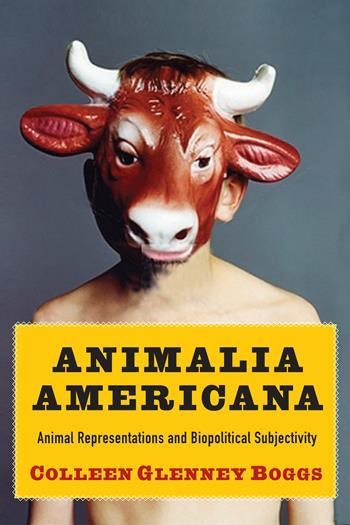Colleen Glenney Boggs puts animal representation at the center of the making of the liberal American subject. Concentrating on the formative and disruptive presence of animals in the writings of Frederick Douglass, Edgar Allan Poe, and Emily Dickinson, Boggs argues that animals are critical to the ways in which Americans enact their humanity and regulate subjects in the biopolitical state. Biopower, or a politics that extends its reach to life, thrives on the strategic ambivalence between who is considered human and what is judged as animal. It generates a space of indeterminacy in which animal representations intervene to define and challenge the parameters of subjectivity. The renegotiation of the species line produces a tension that is never fully regulated. Therefore, as both figures of radical alterity and the embodiment of biopolitics, animals are simultaneously exceptional and exemplary to the biopolitical state. An original contribution to animal studies, American studies, critical race theory, and posthumanist inquiry, Boggs thrillingly reinterprets a long and highly contentious human-animal history.
- CONTENTS
- ILLUSTRATIONS
- ACKNOWLEDGMENTS
- INTRODUCTION
- 1. AMERICAN BESTIALITY: Sex, Animals, and the Construction of Subjectivity (Plymouth Plantation, Abu Ghraib)
- 2. BESTIALITY REVISITED: The Primal Scene of Biopower (Frederick Douglass)
- 3. ANIMALS AND THE LETTER OF THE LAW (Edgar Allan Poe)
- 4. ANIMALS, AFFECT, AND THE FORMATION OF LIBERAL SUBJECTIVITY (Emily Dickinson)
- 5. RETHINKING LIBERAL SUBJECTIVITY: The Biopolitics of Animal Autobiography (Katharine Lee Bates, Barbara Bush)
- EPILOGUE
- NOTES
- BIBLIOGRAPHY
- INDEX

